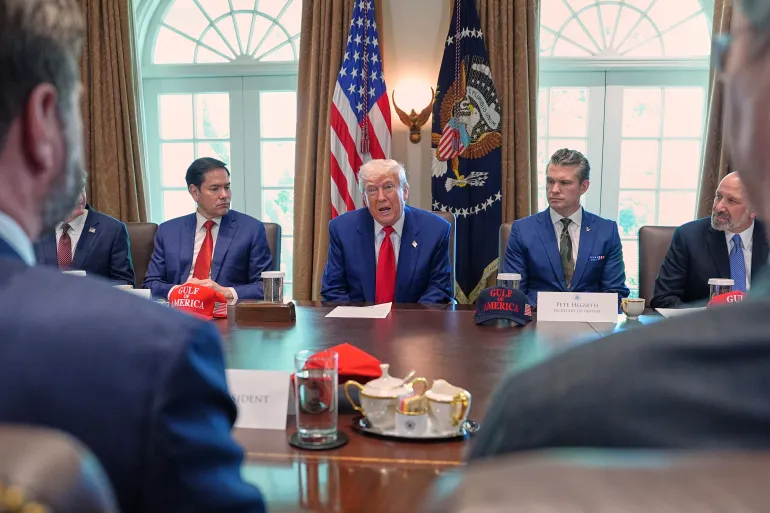United States President Donald Trump has surrounded himself with a cabinet and inner circle that is markedly less hawkish on Iran than during his first term.
But analysts told that it remains unclear whether the composition of Trump’s new cabinet will make a difference when it comes to how the administration responds to the escalating conflict between Iran and Israel.
Last week, fighting erupted when Israel launched surprise strikes on Tehran, prompting Iran to retaliate. That exchange of missiles and blasts has threatened to spiral into a wider regional war.
“I think there are fewer of the traditional Republican hawks in this administration,” said Brian Finucane, a senior analyst at the International Crisis Group, a think tank. “And you do have more prominent restraint-oriented or restraint-adjacent people.”
“The question is: How loud are they going to be?”
So far, the Trump administration has taken a relatively hands-off approach to Israel’s attacks, which Secretary of State Marco Rubio stressed were “unilateral”.
While the US has surged military assets to the region, it has avoided being directly involved in the confrontation. Trump also publicly opposed an Israeli strike on Iran in the weeks leading up to the attacks, saying he preferred diplomacy.
However, on Sunday, Trump told “It’s possible we could get involved,” citing the risk to US forces in the region.
He has even framed Israel’s bombing campaign as an asset in the ongoing talks to curtail Iran’s nuclear programme, despite several top negotiators being killed by Israeli strikes.
Iran’s foreign minister, meanwhile, accused Israeli Prime Minister Benjamin Netanyahu of “playing” Trump and US taxpayers for “fools”, saying the US president could end the fighting with “one phone call” to the Israeli leader.
Analysts agree that any course of action Trump takes will likely transform the conflict. It will also reveal how Trump is responding to the deep ideological rift within his Republican base.
One side of that divide embraces Trump’s “America First” ideology: the idea that the US’s domestic interests come before all others. That perspective largely eschews foreign intervention.
The other side of Trump’s base supports a neoconservative approach to foreign policy: one that is more eager to pursue military intervention, sometimes with the aim of forcing regime change abroad.
Both viewpoints are represented among Trump’s closest advisers. Vice President JD Vance, for instance, stands out as an example of a Trump official who has called for restraint, both in terms of Iran and US support for Israel.
In March, Vance notably objected to US strikes on Yemen’s Houthis, as evidenced in leaked messages from a private chat with other officials on the app Signal. In that conversation, Vance argued that the bombing campaign was a “mistake” and “inconsistent” with Trump’s message of global disengagement.


